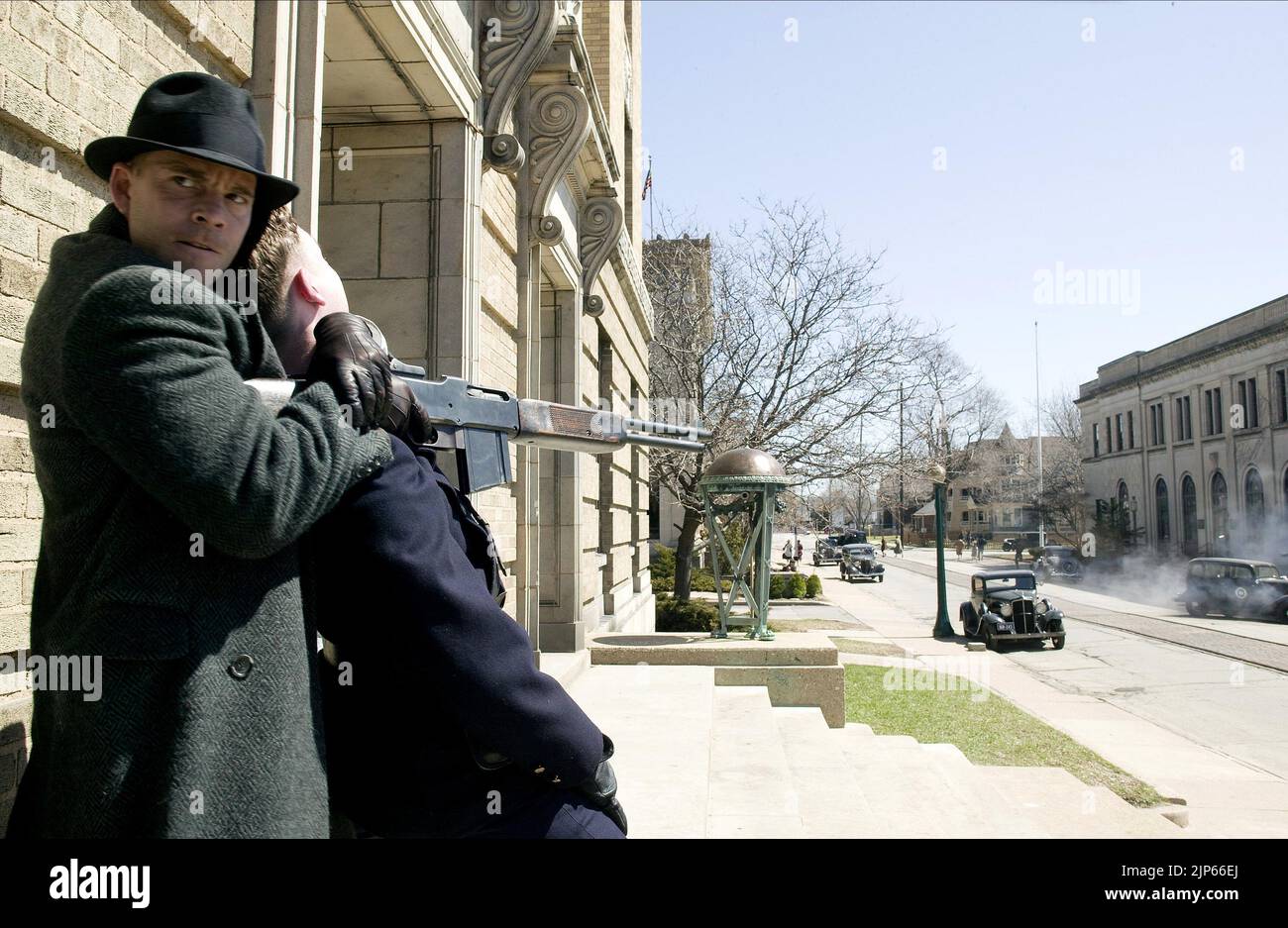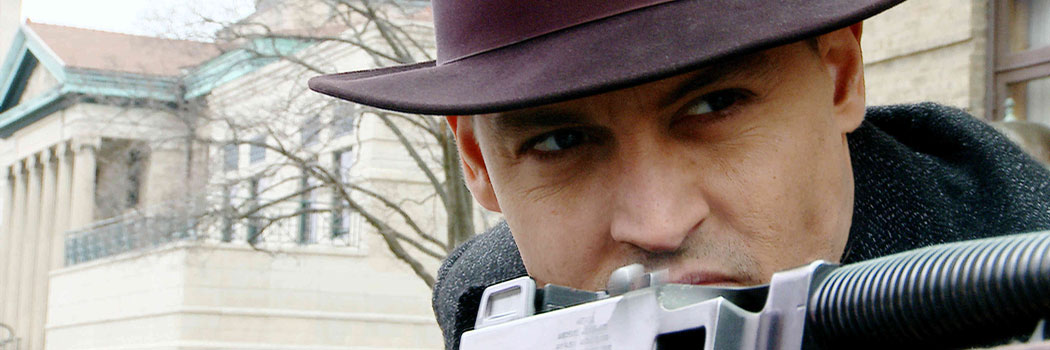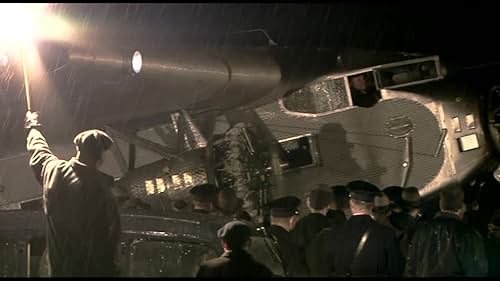Public Enemies (2009)
- nguyentruong
- November 21, 2024

Public Enemies (2009), directed by Michael Mann, is a gripping crime drama that chronicles the final years of legendary bank robber John Dillinger, set against the backdrop of the Great Depression. Starring Johnny Depp as Dillinger and Christian Bale as FBI agent Melvin Purvis, the film is a high-stakes tale of law enforcement’s pursuit of America’s most wanted criminal during a time of societal upheaval.
The story begins in 1933, as Dillinger escapes from an Indiana prison with his gang. His daring and charismatic robberies quickly earn him the status of a folk hero, a symbol of defiance against the banks that many blamed for the economic hardships of the Great Depression. Dillinger’s exploits, however, also draw the relentless attention of J. Edgar Hoover’s newly formed Federal Bureau of Investigation, led in the field by agent Purvis.
Dillinger’s criminal activities are juxtaposed with his personal life, particularly his romance with Billie Frechette (Marion Cotillard), a coat-check girl who becomes his devoted partner despite the danger it brings. Their love story adds a poignant dimension to the narrative, showing Dillinger not just as a notorious outlaw but as a man capable of deep affection.
As the FBI intensifies its efforts to capture Dillinger, the stakes rise. Purvis, a methodical and determined agent, uses emerging technologies and tactics, such as wiretapping and coordinated raids, to close in on his target. The film portrays the birth of modern crime-fighting methods and the moral ambiguities that come with them, as the line between justice and vengeance blurs.
Johnny Depp delivers a magnetic performance as John Dillinger, capturing both his charm and his ruthlessness. Depp’s portrayal highlights Dillinger’s dual nature as a charismatic anti-hero and a cold-blooded criminal. Christian Bale’s Melvin Purvis is equally compelling, portraying a man torn between his duty to the law and the human cost of his mission. Marion Cotillard brings depth and vulnerability to Billie Frechette, whose loyalty to Dillinger provides the film with its emotional anchor.
Michael Mann’s meticulous direction and attention to detail bring the 1930s to life. The film’s production design, costumes, and locations authentically recreate the era, immersing viewers in the world of speakeasies, vintage cars, and Tommy gun shootouts. Dante Spinotti’s cinematography adds to the realism, using handheld cameras and natural lighting to give the film an almost documentary-like feel. The action sequences, particularly the gunfights, are visceral and intense, reflecting Mann’s skill in crafting gripping, realistic combat scenes.
The film also explores broader themes, such as the nature of fame, the shifting definitions of heroism, and the impact of economic disparity. Dillinger’s status as a folk hero reflects the public’s disillusionment with institutions of power, while the FBI’s aggressive tactics raise questions about the price of law and order.
Despite its strong performances and historical accuracy, Public Enemies received mixed reviews from critics. Some praised its authenticity and Mann’s innovative approach to storytelling, while others felt its narrative lacked emotional depth or focus. However, the film’s stylistic choices and the chemistry between its lead actors have earned it a loyal audience over time.
Public Enemies is a powerful exploration of a pivotal era in American history, blending action, drama, and romance into a richly textured story. It is a testament to Michael Mann’s ability to combine historical storytelling with intense character studies, offering a nuanced portrayal of a man whose life and legend remain a source of fascination. Whether viewed as a crime epic or a tragic romance, the film captures the complexities of its characters and the turbulent times in which they lived.











